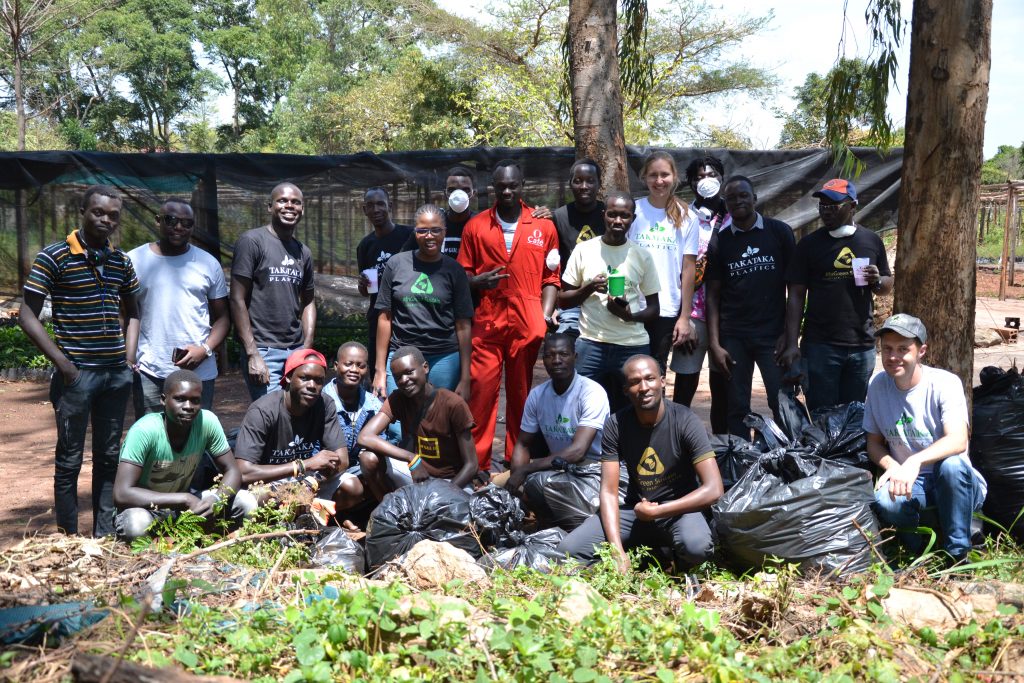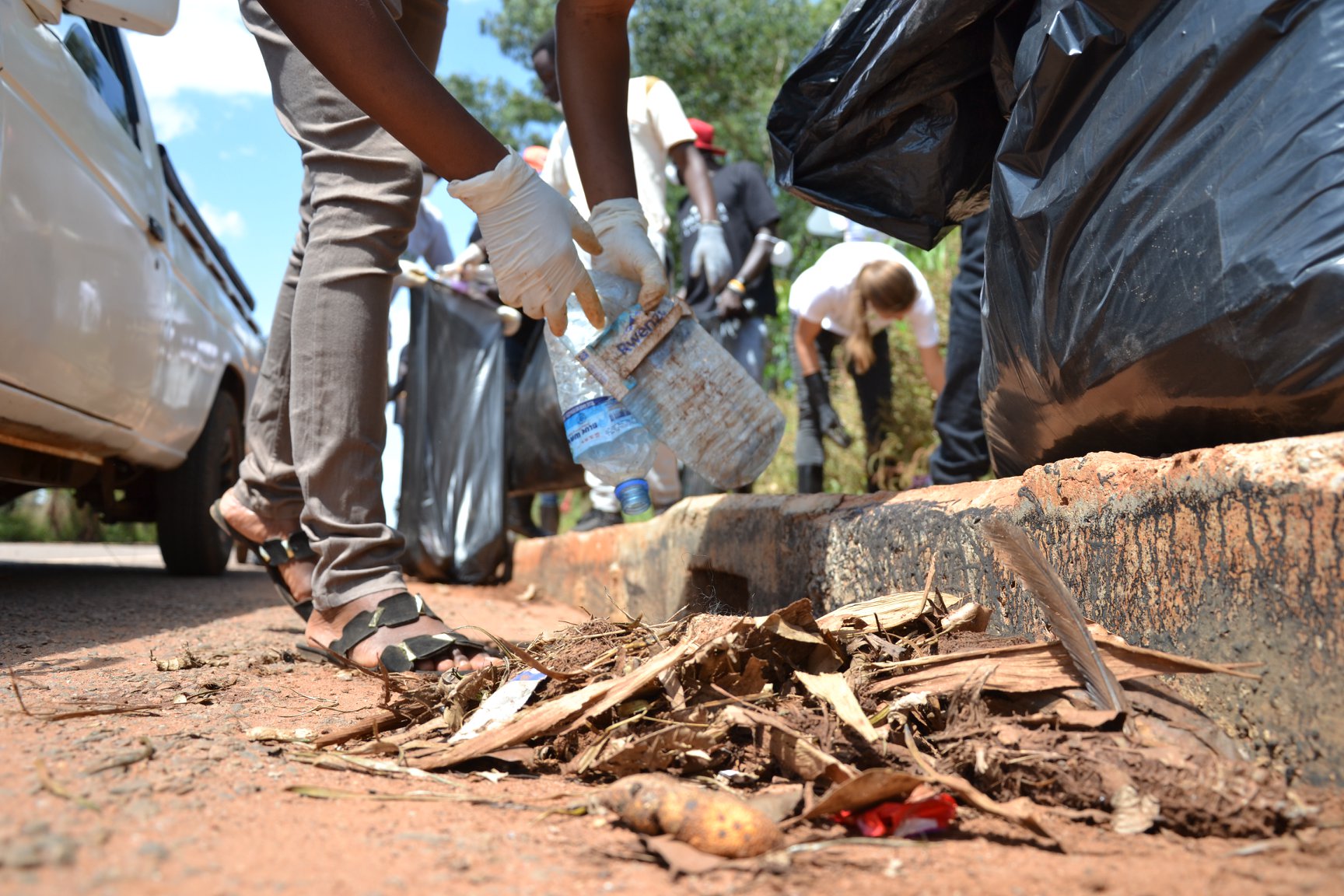
When India restricted international plastic waste imports in October 2019, recycling programs in developing countries stalled due to a lack of technology to locally recycle, leaving recycling plants in Kampala, Uganda “overflowing, with tons and tons of plastics,” said Paige Balcom, co-founder and CTO of Takataka Plastics. “And there’s no way to get rid of it.”
Although plastic waste recycling is a challenge in Uganda’s capital city, the problem is even greater in smaller Ugandan towns. “Gulu is a waste sink because trash gets in, but there’s no way for it to get out,” said Balcom, explaining that the nearest recycling centers for Gulu are the plants in Kampala, a six hour drive away.
In 2018 and 2019, Balcom, a UC Berkeley PhD student in mechanical and development engineering, won the Big Ideas Contest and Big Ideas Scaling Up for Takataka Plastics, a social enterprise that locally transforms plastic waste in Gulu, Uganda into quality and affordable construction materials.
By locally fabricating technology that transforms plastic waste into recycled wall tiles, Takataka Plastics is creating jobs for Gulu locals and providing sustainable products for a growing construction industry in Uganda.
After graduating first in her class in mechanical engineering at University of New Hampshire in 2016, Balcom received a Fulbright grant to work for ChildVoice, a Ugandan NGO that supports war-affected children. Deferring a year from UC Berkeley’s mechanical engineering PhD program, Balcom worked specifically with child mothers, calling her time in Uganda “personally transformative.”
When starting her PhD at UC Berkeley in 2017, Balcom decided to change her research focus to issues in Uganda. “I realized that I loved Uganda and the people there,” said Balcom “and I wanted to go back.”
In 2017, Balcom partnered with Peter Okwoko, former lecturer at Gulu University and Founder of AfriGreen Sustain, an initiative promoting sustainable environmental practices in Gulu through education and sensitization efforts. Together, they decided to concentrate on closing a loop in Gulu’s circular economy.
“Takataka does everything locally. We collect the plastics, we sort them and we process them in the same community,” said Balcom. “We are trying to pour as much as we can into the local economy.”

Besides improving the health and environmental conditions in Gulu, Takataka Plastics aims to create jobs, tackling Uganda’s 60 percent unemployed for the youth by partnering with Hashtag Gulu, an organization that works with kids who have run away from abusive home situations and are often left without food and shelter on the streets.
Balcom and her team are currently working on building machines that can process PET plastic, or polyethylene terephthalate, which is the common plastic found in water bottles.
“Only 20 percent of waste in Gulu is collected, and even that is not sorted,” Balcom said, explaining how Gulu’s plastic, organic, and medical waste is left in a dumpsite just outside of town. “What we are trying to do is very difficult,” said Balcom, “which makes it that much more rewarding.”
China’s plastic import ban has affected the U.S. as well. “Many cities and towns in the U.S. that use to recycle plastic aren’t doing it anymore, and their recycled waste is being sent to the landfill because they can’t export it,” said Balcom. “What I think we can learn from Takataka Plastics are other possible local recycling models.”
In early February, Takataka hosted its first community clean-up, where they invited locals to help clean the local market, bring the collected waste to the Takataka office, and sort it. “It was encouraging to see how many people came out,” said Balcom, “and how much interest there was from people who wanted to help out the environment and their community.”
Partnering with The Market Project, a U.S. nonprofit that supports social enterprises focused on helping people who have experienced trauma, exploitation, and trafficking, Balcom and Okwoko launched their pilot program in Gulu in January 2020 to scale up their prototype machines, produce recycled wall tiles, and sell their products within the year.
“There’s a lot of things I am excited for,” said Balcom about Takataka Plastic’s launch. “I’m excited to be able to give jobs to the kids who live on the streets, build these machines, and just see a clean Gulu.”